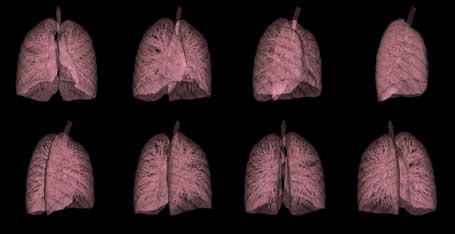
Chronic obstructive pulmonary disease (COPD) describes a largely untreatable and common set of lung pathologies affecting more than 80 million people, predominantly in low and middle income countries. The World Health Organization estimates that, by 2030, COPDs will be the third largest cause of deaths worldwide. Underlying many COPD pathologies are clinical associations with a loss of control of host immunity. This can be a result of a number of inputs. Our infectious history appears to be extremely important in initiating or preventing the lung remodeling that drives COPDs.
Our interests lie in how can different pathogens influence the onset of chronic lung disease. In particular we are interested in how our infectious history influences our immune system. A number of studies have recently identified that infections by, for example, parasitic helminthes can slow or prevent pathologies caused in certain respiratory diseases such as allergy, tuberculosis, respiratory syncytial virus (RSV) and influenza infections.
Our collaboration is particularly interested in how infections with parasites can protect against the remodeling effects on the lung of infections which pre-dispose us to COPDs. To address this complex question we are conducting complementary clinical and basic immunological studies alongside major epidemiological studies into lung health.
Selected outcomes
- Awarded over £150K from the Marie Curie Incoming Fellowship (EU), National Research Foundation (South Africa), Royal Society International Exchange (UK), Sir Halley Stewart Trust (UK) and the University of Cape Town (South Africa).
- Patent application for ‘Protection against parasitic nematode infection by surfactant (SPD)’ filed in February 2014.
- Five research papers published, as well as one book titled ‘How Helminths Alter Immunity to Infection’.